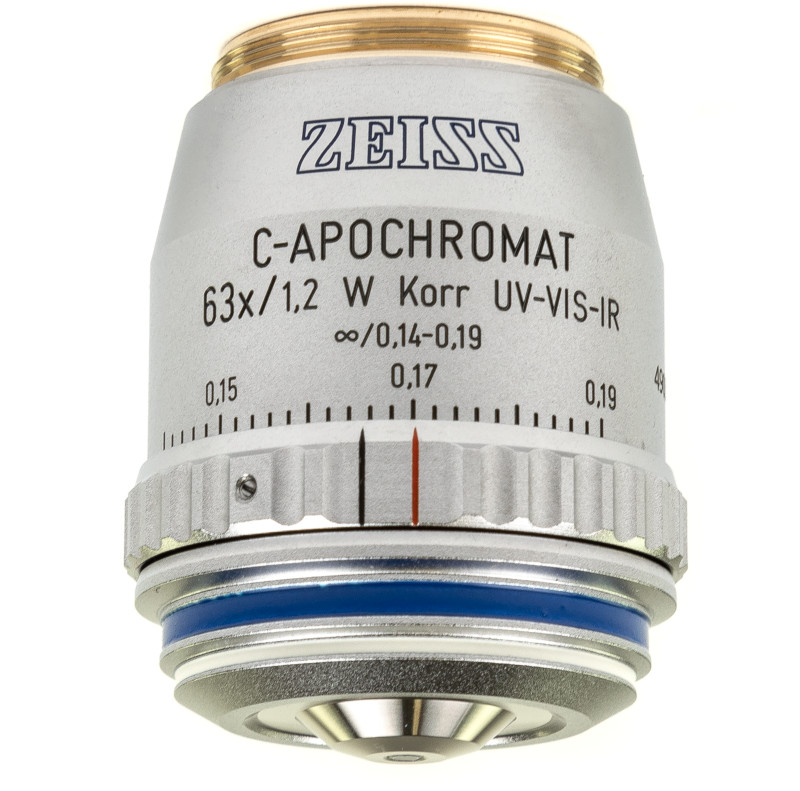
Objective C-Apochromat 63x/1.2 W Corr M27
Objective C-Apochromat 63x/1.2 W Corr M27
Item no.: 421787-9970-799Objective C-Apochromat 63x/1.2 W Corr M27 (CG=0.14-0.19mm) (FWD=0.28mm at CG=0.17mm), UV-VIS-IR incl. Immersol W, bottle 20 ml and Cover glasses, high performance, CG=0.17mm, box with 100 pc. With serial number. Strehl ratio >90%.
Full DescriptionThis objective has a high Strehl ratio, especially for Superresolution Microscopy.
| Magnification | 63x |
| Numerical Aperture | 1.2 |
| Free Working Distance [mm] | 0.28 at cover glass 0.17 |
| Coverglass Thickness [mm] | 0.14 - 0.19 |
| Thread Type | M27x0.75 |
| Immersion | Water and W 2010 |
| Field of View [mm] | 25 |
| Parfocal Length [mm] | 45.06 |
| Long Distance | |
| Correction Ring | 
|
| Iris | |
| Optical System | Infinity Color Corrected System (ICS) |
| Color Correction | apochromatic |
| Biomedical Applications | |
|---|---|
| Fluorescence | 
|
| - Multichannel | |
| - Ultraviolet Transmission | |
| - Infra Red Transmission | |
| BrightField | 
|
| DIC [Differential Interference Contrast] | |
| High Contrast DIC | 
|
| PlasDIC | |
| Phase Contrast | |
| VAREL Contrast | |
| Hoffman Modulation Contrast | |
| Polarization Contrast | |
| Materials (Reflected Light) Applications | |
| BrightField | |
| BrightField/DarkField | |
| Reflected Light DIC | |
| High Contrast DIC | 
|
| DIC with circular polarized light | |
| Total Interference Contrast | |
| Polarization Contrast | |
| Options | |
| Definite Focus.2 | |
| Confocal Microscopy | 
|
| - Ultra Violet | |
| - VIS (visible light) | |
| - NLO-IR / 2 Photon | |
| Total Internal Reflection Fluorescence | |
| Apotome | |
| Microdissection | |
-

Objective heater 33/38 S1 (D)
Item no.: 411860-9067-000Objective heater 33/38 S1 (D)
Item no.: 411860-9067-000
Objective heater 33/38 S1 (D) - with oil discharge channel - clamping via front dia. 33 mm - max. objective dia. 38 mm - temperature range of room temperature up to +45°C
-
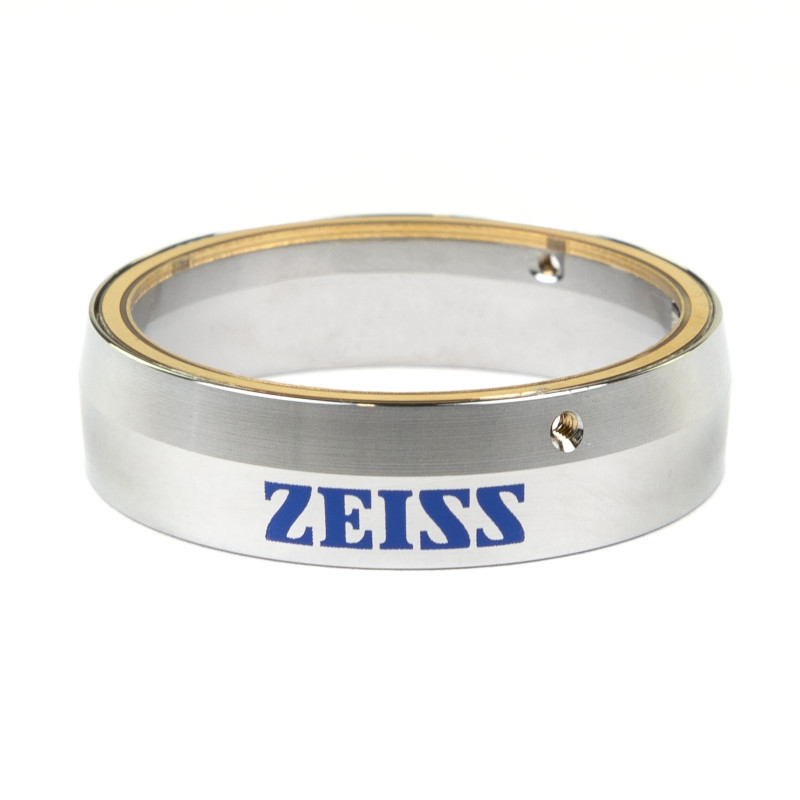
Objective ring ACR for objective sleeve conical long
Item no.: 424510-0000-000Objective ring ACR for objective sleeve conical long
Item no.: 424510-0000-000
Objective ring ACR for objective sleeve conical long
-
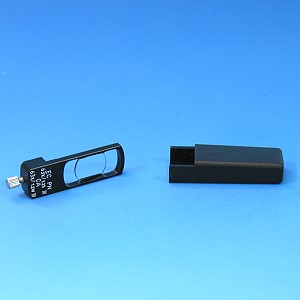
DIC slider EC PN 63x1.25 III, CA 63x/1.2 W III
Item no.: 426946-0000-000DIC slider EC PN 63x1.25 III, CA 63x/1.2 W III
Item no.: 426946-0000-000
DIC slider EC PN 63x1.25 III, CA 63x/1.2 W III
-
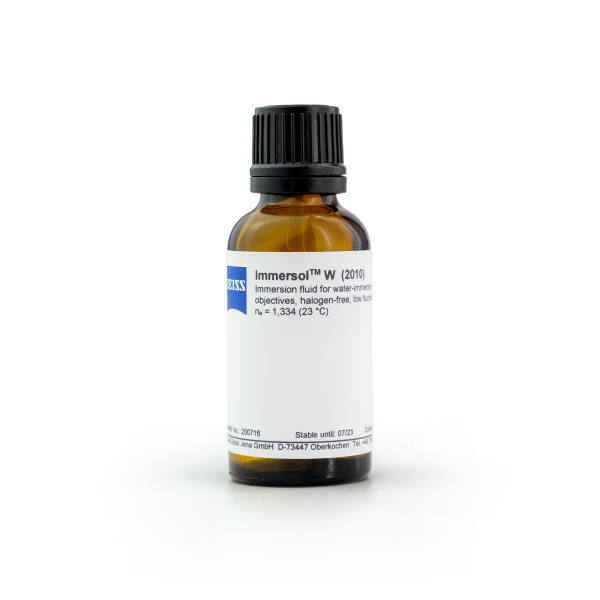
Immersion medium Immersol W 2010, oiler 20 ml
Item no.: 444969-0000-000Immersion medium Immersol W 2010, oiler 20 ml
Item no.: 444969-0000-000
Immersion medium Immersol W 2010, oiler 20 ml ne=1.3339 (23°C) for water immersion
-
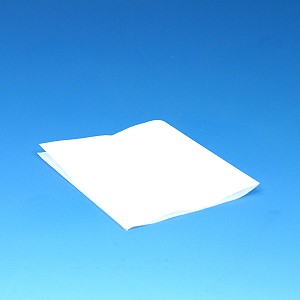
Box of lens cleaning paper (300 sheets)
Item no.: 462975-0000-000Box of lens cleaning paper (300 sheets)
Item no.: 462975-0000-000
Box of lens cleaning paper (300 sheets)
-
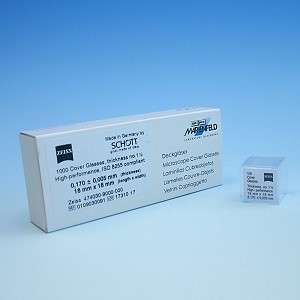
Cover glasses, high performance, D=0.17mm, box with 1000 pc.
Item no.: 474030-9000-000Cover glasses, high performance, D=0.17mm, box with 1000 pc.
Item no.: 474030-9000-000
Cover glasses, high performance, D=0.17mm, box with 1000 pc. Size 18x18 mm² type 1 1/2 H as per ISO 8255-1 with restricted thickness-related tolerance D=0.17 mm +/- 0.005 mm refractive index = 1.5255 +/- 0.0015, Abbe number = 56 +/-2 recommended for applications with high numerical aperture objectives
Note:
All measures in [mm]
mech. Arbeitsabstand = mechanical working distance
Deckglas = cover glass
Objektebene = object plane
Objektfeld = object field
Ausleuchtung = illumination
Probenzugänglichkeit = specimen accessibility

Note:
Please note that due to production tolerances, the given values are typical only and not guaranteed.

If you want to examine a biological specimen having a refractive index close to that of water (n = 1.33) with a high-aperture objective, an oil objective can only supply a useful result unless you focus at too great a depth below the specimen surface.
If you want to look deeper into the specimen, high spherical aberration will annihilate contrast and resolution and drastically reduce image brightness. The latter will be noticed especially in confocal microscopy by a substantial deterioration of the signal-to-noise ratio.
Therefore, an oil objective, however good it may be, is not the optimum for a water-like specimen. In the designing of objectives, the refractive index of the intended specimens (and the immersion medium) plays an essential part.
Oil objectives are designed and corrected on the assumption that the refractive indices of the immersion and embedding media are equal (n = 1.52). For water objectives, this index is assumed to be n = 1.33 for both media.
Special objectives:
C-Apochromat 40x and 63x corrected from UV to IR !
Other water immersion objectives:
For use without coverglass:
- Achroplan W objectives, corrected for specimens without cover glass and for long working distances, especially for use in microinjection and patch-clamp techniques on upright microscopes.
- Objective Plan-Apochromat W 63x/1.0 corrected from VIS to IR.
For use with coverglass:
- LCI Plan-Neofluar multi-immersion objectives, corrected for immersion media with refractive indices between those of water and oil, and for a single cover glass thickness.
The examination of an aqueous specimen to exacting standards, e.g. with a laser scanning microscope, involves a number of special requirements that have to be satisfied:
- High aperture for high resolution in optical thin sections, and high brightness of fluorescence
- Long working distance for 3D examinations
- Low axial chromatic aberration so that the focal planes of different wavelengths coincide
- Low lateral chromatic aberration so that different fluorescence images register.
- Flat field to enable true-to-life 3D reconstruction
To satisfy these requirements, the C-Apochromat® 40x/1.2W Corr was designed to have the following properties and features:
- Water immersion for aqueous specimens (vital sections, cell cultures, specimens with aqueous embedding medium)
- Correction collar for compensating differences in cover glass thickness (0.14...0.18 mm) and temperatures (scales for 24ºC and 37ºC)
- The correction collar can also be used for compensating slight deviations of the specimen´s index of refraction from that of water
- Magnification 40x
- Numerical aperture: 1.2
- Free working distance: 220 µm
- Image flattened over 25 mm (conventional) or 12 mm (confocal)
- Transmittance (absolute): 50% at 350 nm, 85% at 400 nm, 90% at 500...700 nm
- High chromatic correction (as for Plan Apochromat objectives)
- No spherical aberration in aqueous specimens
Background
If the embedding and immersion media differ in refractive index, the optical paths will differ in length. Depending on the depth of the focal point below the specimen surface, the difference will range between negligible and quite distinct. As path difference increases, so does spherical aberration, with considerable losses in definition, contrast, brightness and depth resolution. Moreover, measurements in axial directions will be deteriorated by scale contractions and expansions along the Z axis. To exclude deformation along Z, the refractive indices need to be equal. Subsequent correction by the computer is unsatisfactory, because it cannot compensate spherical aberrations. It is therefore imperative that the immersion medium be matched to the specimen.
Objectives with extra-high apertures (1.2 being the very limit for water immersion) are highly sensitive to differences in cover slip thickness. Therefore, the C-Apochromat® 40x/1.2W Corr has a correction collar to compensate for cover slip thicknesses between 0.14 and 0.18 mm. For maximum optical performance, however, it is recommendable to use cover slips with closely toleranced thicknesses (e.g. 0.16...0.17 mm). If the objective is used on the laser scanning microscope, the cover glass thickness can easily be measured and the correction be set to a high precision.
Objective C-Apochromat 63x/1.2 W Corr M27 (CG=0.14-0.19mm) (FWD=0.28mm at CG=0.17mm), UV-VIS-IR incl. Immersol W, bottle 20 ml and Cover glasses, high performance, CG=0.17mm, box with 100 pc. With serial number. Strehl ratio >90%.